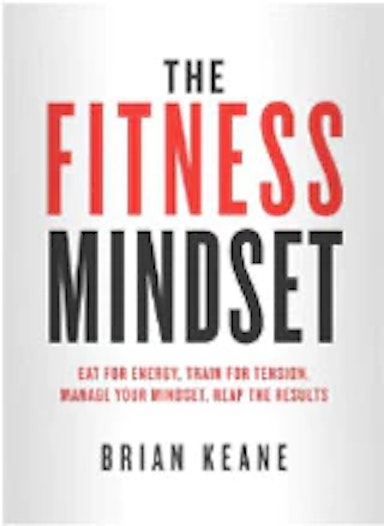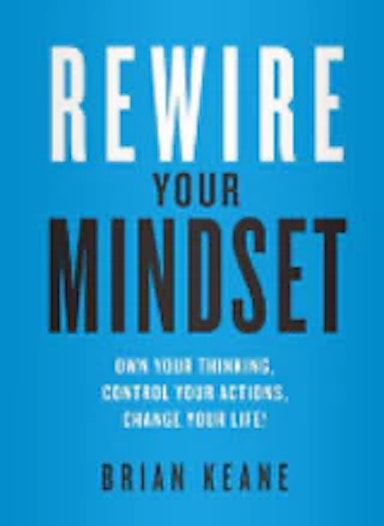5 Unusual Questions To Ask Yourself To Help With Your Mental Health!
- By Brian Keane
Your mind is swirling with the all the things that could go wrong in the future.
Your thoughts are fixated on something in past that you can’t change, yet it grips you as if it were happening in this very moment.
It feels like your mind is rebelling against you and it feels overwhelming or just too much at times.
I know the feeling. I’ve been there myself. Anxiety, depression and everything in between.
Fortunately for many of us, we can change and alter this. I’ve always envisioned my mental health difficulties as a broken down car that was missing a few parts to function correctly. If I could just add the right parts or in this instance, ask the right questions, then I could it get it to work as normal.
Any time I would slip into a depression, it was generally down to make really poor life choices: the people I was spending time with, an unfulfilling job or career choice or what I was choosing to focus my attention and energy on.
My anxiety on the other hand is a bit more hard wired; I’ve always been an over thinker and this can work to my advantage on occasion – it helps me get things done as I can’t relax until I’ve completed a task; but it also regularly left me staring at the ceiling when trying to sleep as I couldn’t shut down the constant mind chatter.

However, there are lots of small choices you can make that can impact your mental health in a positive way, everything from the food you eat to your exercise regimen and sleep routine. All of which impact your physiology, your mood and your overall feeling of well-being. I’m going to assume that if you’re following my content, you already have a decent understanding of the above; so here is something different.
These are five unusual questions I ask myself any time I feel my mental health slipping.
1: What part of this am I NOT owning or taking responsibility for?
I’m starting with the most uncomfortable of questions. In essence, most of my mental health struggles stemmed from feeling out of control. In regards to the past or things that have already happened, this is largely true. I can’t change the past and this made me feel powerless.
Yet, when I finally owned or took responsibility for that reality, I become aware of the power of letting go of the things I cannot change. This gave me tremendous freedom when I started to adopt it as a philosophy several years ago.
I also began to reframe things that had happened in the past and would force myself to take at least one good thing from a hurtful life story and blow that thing up until it began to outweigh the negativity of the situation. From my experience, this is extremely difficult at the beginning. The negative thing we are focused on takes up so much mental real estate that it feels damn near impossible to find a positive BUT if you try hard enough, you will find something that you can cling onto.

On the flip side then, we have anxiety; which to me feels like an old friend at this stage in my life. Thankfully, I’ve long understood that my anxiety was much more linked to my daily actions: how I ate, how I slept, who I spend time with, what I focus my attention on etc. If I start to see this old friend coming round a little more than normal, I evaluate what has changed in my life recently to lead to this. Am I still eating well? Am I still working out regularly? Is my selfcare a priority? Or in my most cases, its people related. Am I spending too much time with people or doing things that drain or deplete me? Which brings me onto my next question.
2: Will this nourish or deplete me?
This is probably the most important question on this list; and the one I come back to most often. It’s very simple in its premise.
Look at who you spend 80% of your free time with: friends, family members, work colleagues etc – Now ask, do these people nourish or deplete me?
I find that the people we meet tend to fall into three categories. Those who nourish us, those who deplete us and those who are neutral, they don’t give us any extra energy but they also don’t rob our energy.
Some people we meet give us energy, they nourish us; Think of an upbeat auntie or uncle or a friend who can pick you up even on the lowest of days.
Then there are those who deplete us, the ‘emotional vampires’ of life. They feed off drama and negativity. They might be a parent, sibling, work colleague or an old friend from school; we’ve all met them.
In most cases, minimising physical contact with these type of people is the best strategy; but in cases where you can’t do this, then minimising the mental or emotional weight in their presence is also a good tactic. Make the phycological tool of ‘disassociation*’ work for you, instead of against you.
*Dissociation is a disconnection between a person’s thoughts, memories, feelings, actions or sense of who he or she is.” – Phychiatray.org
Personally, I regularly apply this question to things outside of just people.
One of the primary reasons I left my job as a teacher in 2014 was because teaching, or more accurately, the paperwork that came with it, depleted me like no other job I had ever done.
On the other hand, working in fitness did the complete opposite for me.
From my days as a 1:1 personal trainer to now as an online coach, I still feel nourished by what I do every day.
The beauty of this question is that what nourishes you might deplete me and vice versa.
For example, I HATE sun holidays. Lying around beside a pool for two weeks sounds like hell to me; BUT I love adventure holidays or city trips where I’m clocking in 20,000 steps just seeing the city; so experiment with things until you find what works for you.

3: Can my current habits carry me to my desired future?
This is most linked to your selfcare regimen. I’ve said in past books that if you tell me what you do every day, I’ll tell you where you’ll be in a year; but this question also allows you to see what trajectory or path you’re currently on.
The unsexy truth of dealing with most self-created mental health issues is that small and seemingly insignificant things play a huge role in how you feel.
Getting eight hour of sleep every night instead of seven. Eating 80% nutrient dense foods instead of 60%, working out four times a week instead of three etc. These changes compound or snowball as the weeks, months and years progress.
Sometimes you need to add things – more sleep, better food, increased movement and sometimes you need to remove things – distractions before bed, temptation in food cupboards or using your phone during workouts etc.
When you do identify this and take action with the positive changes, you can create an environment that makes your desired change inevitable.
4: How can I create an environment that will make my desired change inevitable?
Think systems over willpower.
One of the more disconcerting truths that I had to accept about myself was that sometimes I need to protect myself from myself.
For example, I met my fiancé several years ago; but before that, I had a decade of short term relationships and copious flings.
At the time, I didn’t connect that what I said and how I acted were out of alignment.
I said I wanted a long term relationship but my actions prioritised my work or fitness adventures
I was also on several dating apps, which I knew for me were a poor vehicle for a potential relationship as I valued conversation and personality above appearance and those apps tended to work in reverse (for me anyways).
At the time my environment wasn’t making my desired change inevitable, quite the contrary.
Once I understood that I needed to protect myself from myself and that the paradox of choice was really inhibiting me, did my desired change start to manifest.
To cut a long story short, I deleted all the dating apps, I let go and stopped forcing things to happen and my desired changed started to transpire.
But what about you?
Maybe you are fine with romantic or personal relationships; but you struggle with your weight, appearance or body confidence? What systems do you need that will make that change inevitable?
Do you need to keep sweet food out of the cupboards?
Do you need to repeat positive affirmations to yourself every morning or is something else?
Willpower will get you so far but it will run out eventually. Once you combine that with your true force multiplier, you will become unstoppable.
5: What is my true force multiplier?
Force multiplier is a term in military science whereby the factor or a combination of factors that gives personnel or weapons the ability to accomplish greater feats than without it.
In other words, what’s the one thing that impacts everything else in a positive (or negative) way.
For some, their true force multiplier for their mental health is meditation. They anchor their day in mindfulness or some practice of being present, and this is the pillar upon which their good mental health house is built.
For me, my true force multiplier for my mental health is sleep.
I know, its generally not what you’d expect to read; but hear me out.
When I’m sleeping well, I wake up feeling refreshed.
When I feel energised, I normally have a great morning workout, which leads to a good post workout meal choice and that sets up my nutritional choices for the day.
The nutrition focus allows me to feel focused in my work tasks and I get that ‘fulfilled’ feeling of having accomplished something for the day.
hat accomplishment allows me to switch off when I’m with my family, friends or loved ones the cycle continues.
On the nights that I don’t sleep well, I still manage all of the above, it just feels harder and I can use willpower for a day or two but several nights of poor sleep tends to see me decline in all of the above; so for me, it’s my true force multiplier.
But what is it for you? You might not know straight away and that’s okay, it took me a while to figure out mine too.
The advice I would offer is this. If you know what it is now` or you find out in the near or distant future, make it a ‘non-negotiable’ and the top of your priority list.
It’s the one thing that impacts everything so it’s worth the focus and attention.
Final thoughts.
I never want to simplify a topic as nuanced and wide spread as mental health.
It’s a very large spectrum, all the way from suicidal tendencies to feeling a little stressed and everything in between.
My advice is to do what supports you best.
If you find yourself deeply depressed or with anxiety levels beyond the perceived scope of management, then talk to professional.
If on the other hand, you are still in the manageable realm; but its impacting your day to day life quality, then hopefully these questions help.
I have several resources that could help and support you, and I’ll ink them below.
Thanks for reading and feel free to share this with anybody you think it will help.
Resources:
References:
https://www.psychiatry.org/patients-families/dissociative-disorders/what-are-dissociative-disorders


